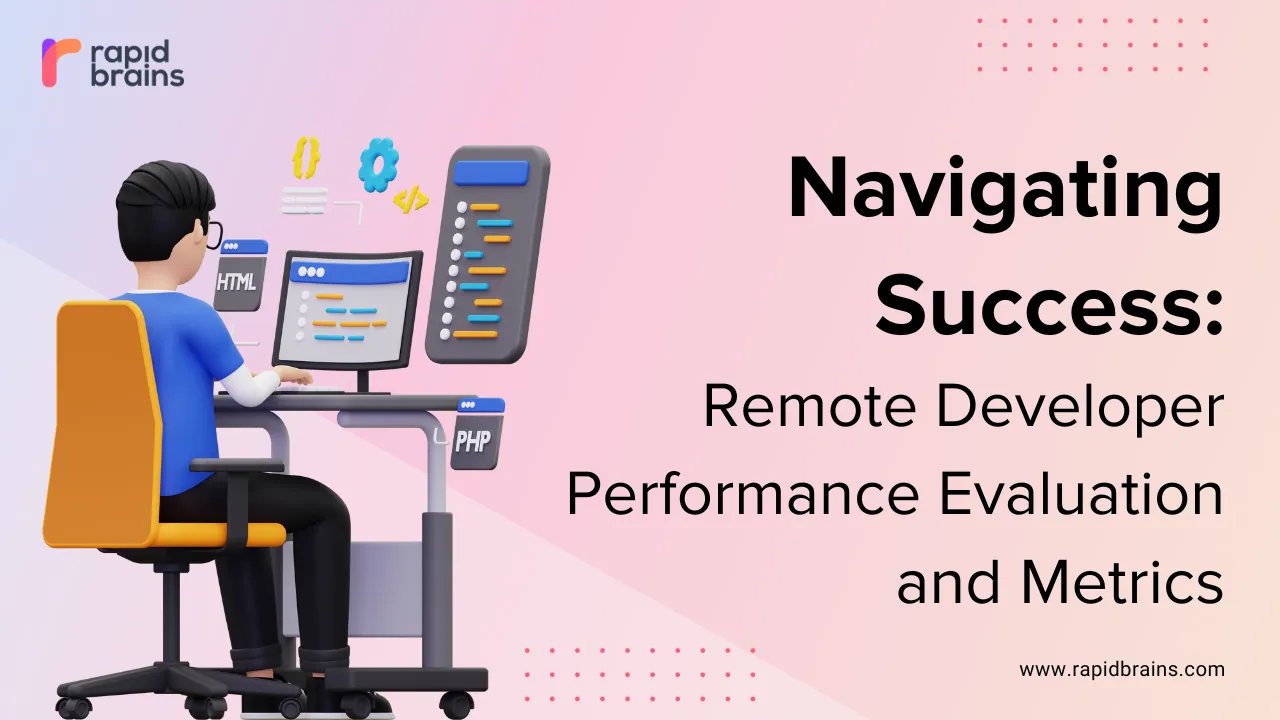
Introduction
In today’s digital landscape, the rise of remote work has revolutionized the way businesses operate, with remote developers playing a crucial role in driving innovation and growth. However, evaluating the performance of remote developers presents a unique set of challenges for organizations. Traditional performance evaluation methods may not fully capture the dynamics of remote work. In this blog post, we will delve into the world of remote developer performance evaluation, exploring effective metrics and strategies to unlock success in managing and assessing remote development teams.
Redefining Performance Evaluation in the Remote Era
Remote work requires a paradigm shift in the way we evaluate developer performance. Gone are the days of relying solely on hours spent in the office. Instead, focus should be shifted towards output, collaboration, and impact. Emphasizing these factors not only ensures a fair assessment but also encourages a results-driven culture within remote teams.
Defining Key Performance Metrics for Remote Developers
a. Output and Deliverables: Measuring the quantity and quality of work produced is paramount. Establishing clear goals, setting deadlines, and tracking deliverables helps evaluate productivity and assess individual performance objectively.
b. Collaboration and Communication: Remote work thrives on effective collaboration. Metrics such as participation in team discussions, timely response to messages, and proactive engagement in virtual meetings can gauge a developer’s ability to collaborate and communicate effectively.
c. Initiative and Self-Motivation: Remote developers should possess self-motivation and initiative to overcome the challenges of working independently. Metrics like proactively seeking new tasks, suggesting improvements, and taking ownership of projects can indicate their drive and commitment.
d. Problem-solving and Innovation: Remote developers often face unique problem-solving scenarios. Evaluating their ability to identify and resolve issues, as well as their contributions to innovative solutions, provides valuable insights into their problem-solving skills and creativity.
Leveraging Technology for Objective Assessments
With remote work heavily reliant on digital tools, organizations can leverage technology to capture data and facilitate objective evaluations. Automated tracking of work progress, version control systems, project management tools, and code review platforms can provide concrete evidence of performance, reducing biases and subjectivity.
Continuous Feedback and Performance Coaching
Regular feedback is crucial for remote developers to thrive. Managers should establish a feedback loop that includes constructive criticism, recognition of achievements, and suggestions for improvement. Additionally, performance coaching can help remote developers identify areas for growth, enhance their skills, and align their objectives with organizational goals.
Cultivating a Remote-First Culture
A successful remote developer performance evaluation process goes beyond metrics and assessments. Creating a remote-first culture that prioritizes trust, open communication, and flexibility fosters engagement and boosts performance. Regular virtual team-building activities, knowledge-sharing sessions, and mentorship programs can enhance the overall remote developer experience and motivate them to excel.
Conclusion
As remote work continues to reshape the global workforce, organizations must adapt their performance evaluation practices to effectively manage and assess remote developers. By redefining evaluation criteria, leveraging technology, and fostering a supportive remote-first culture, companies can unlock the full potential of their remote development teams. Remember, remote work offers exciting opportunities for talent acquisition and global collaboration, and by embracing the right evaluation strategies, organizations can empower their remote developers and achieve remarkable success in the digital era




